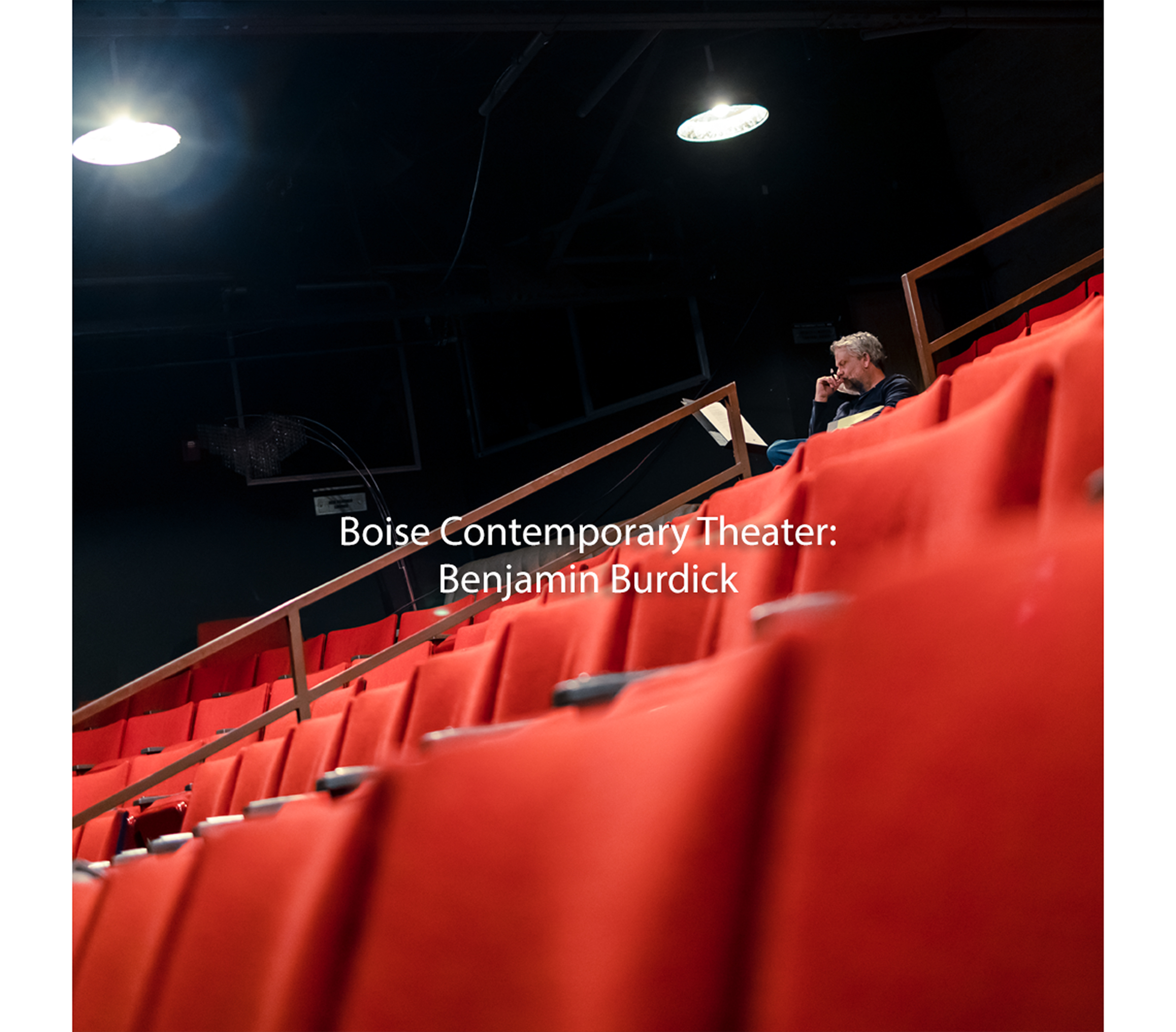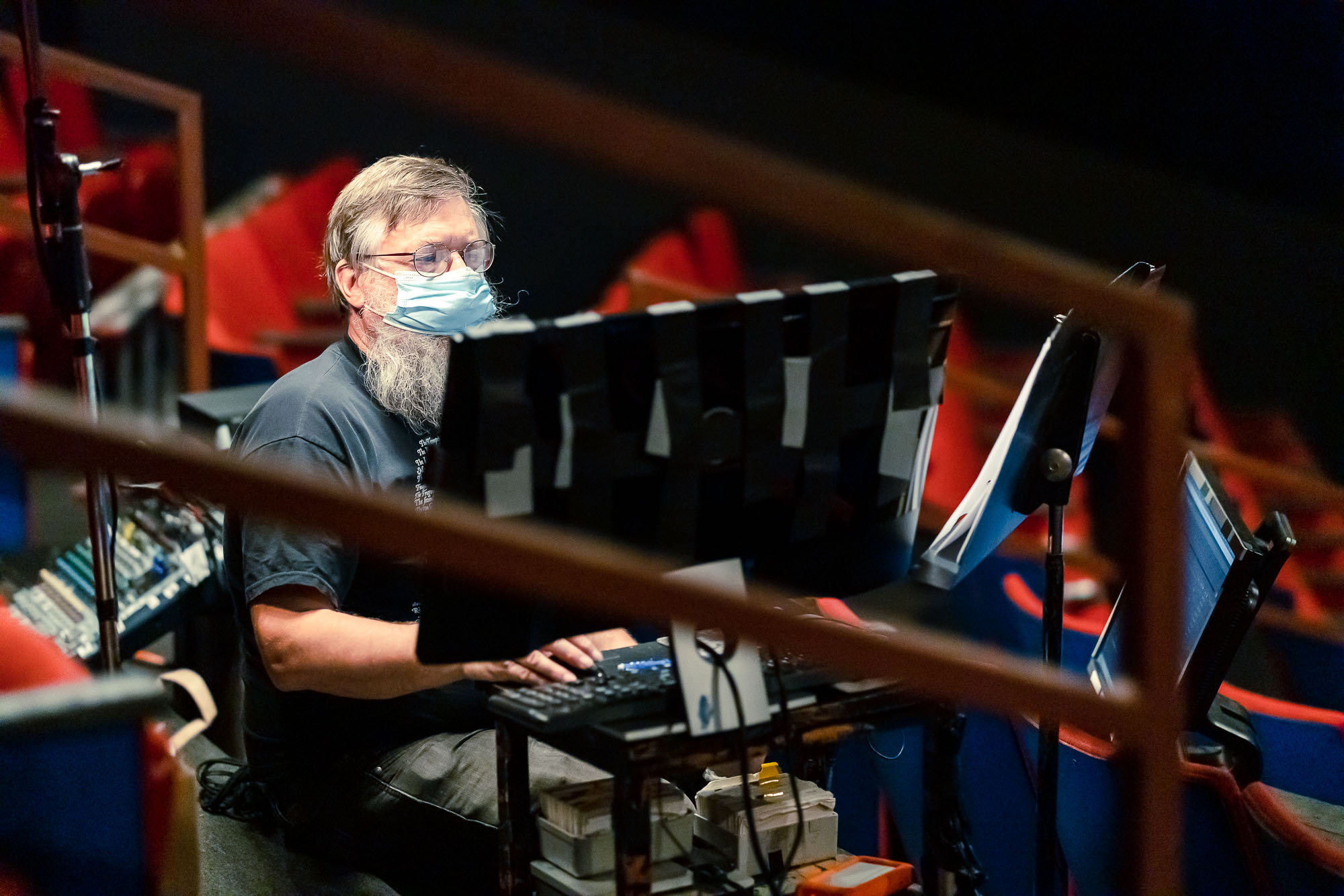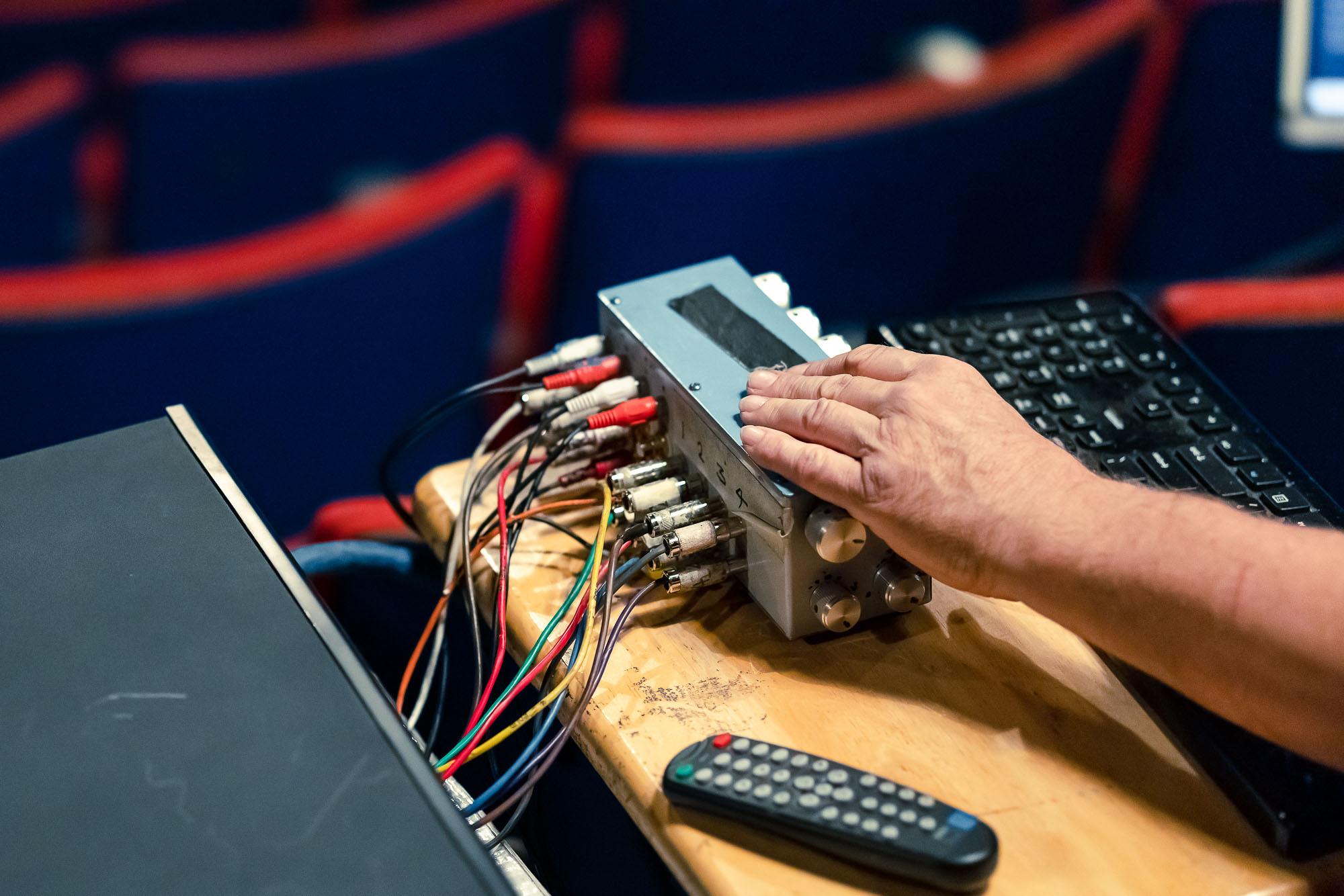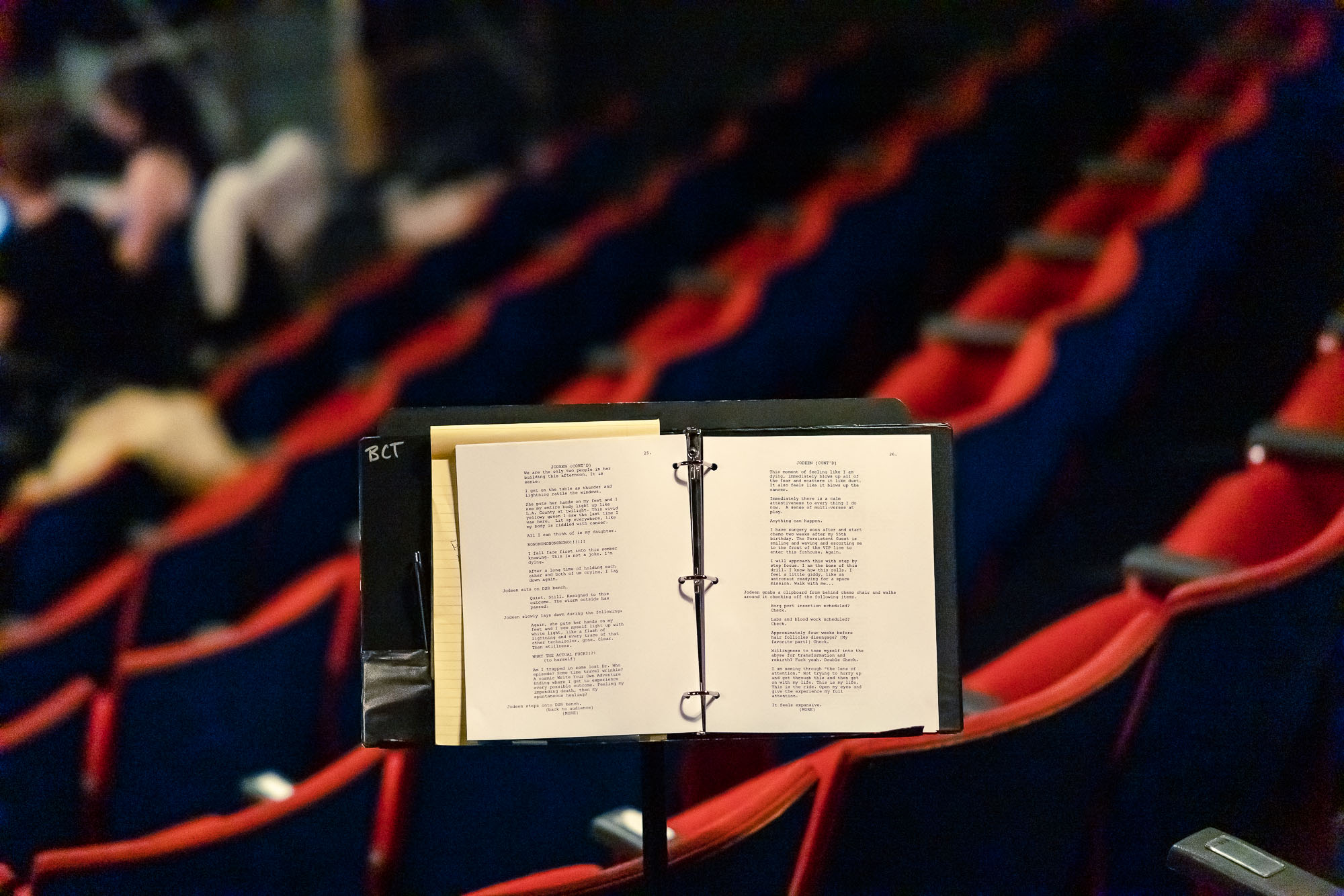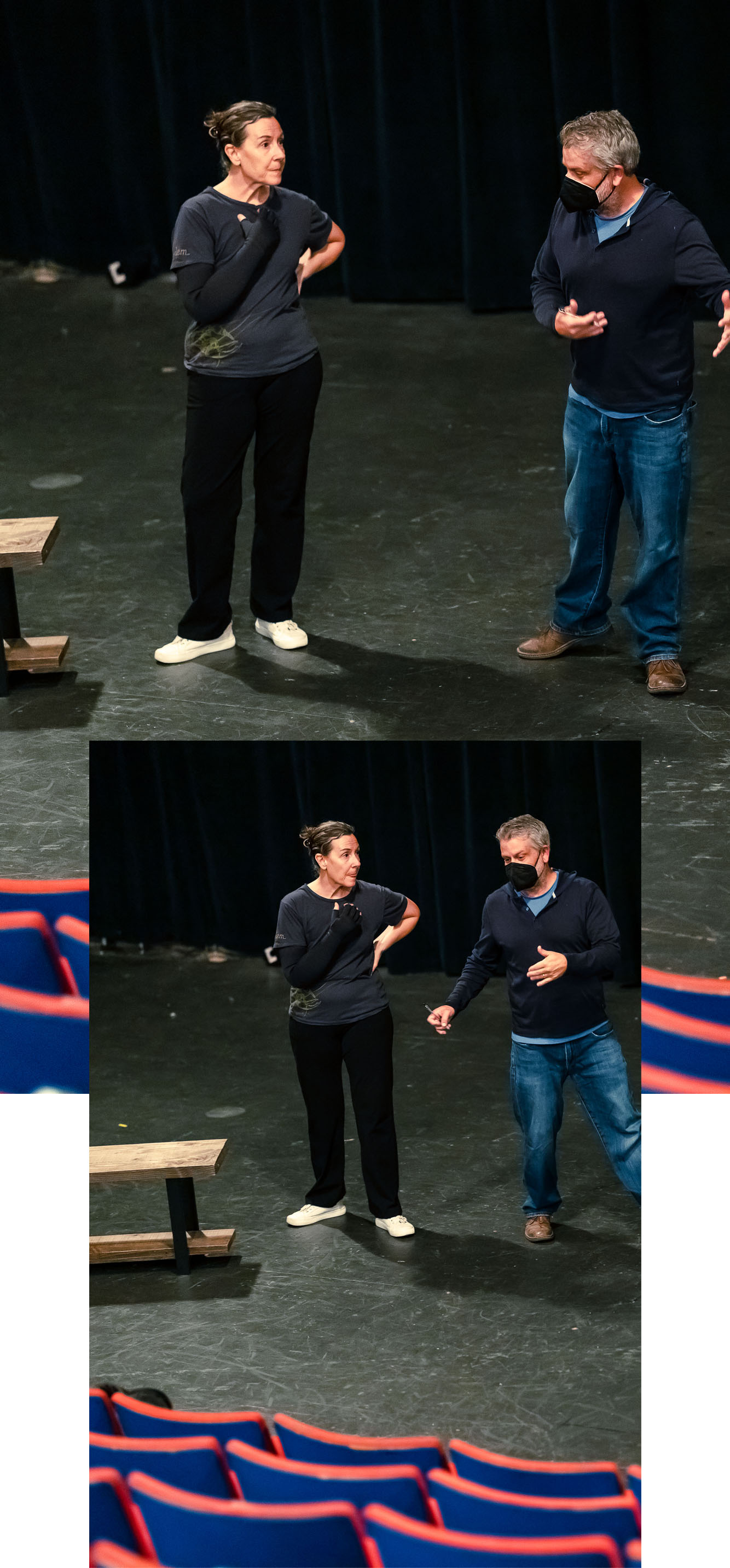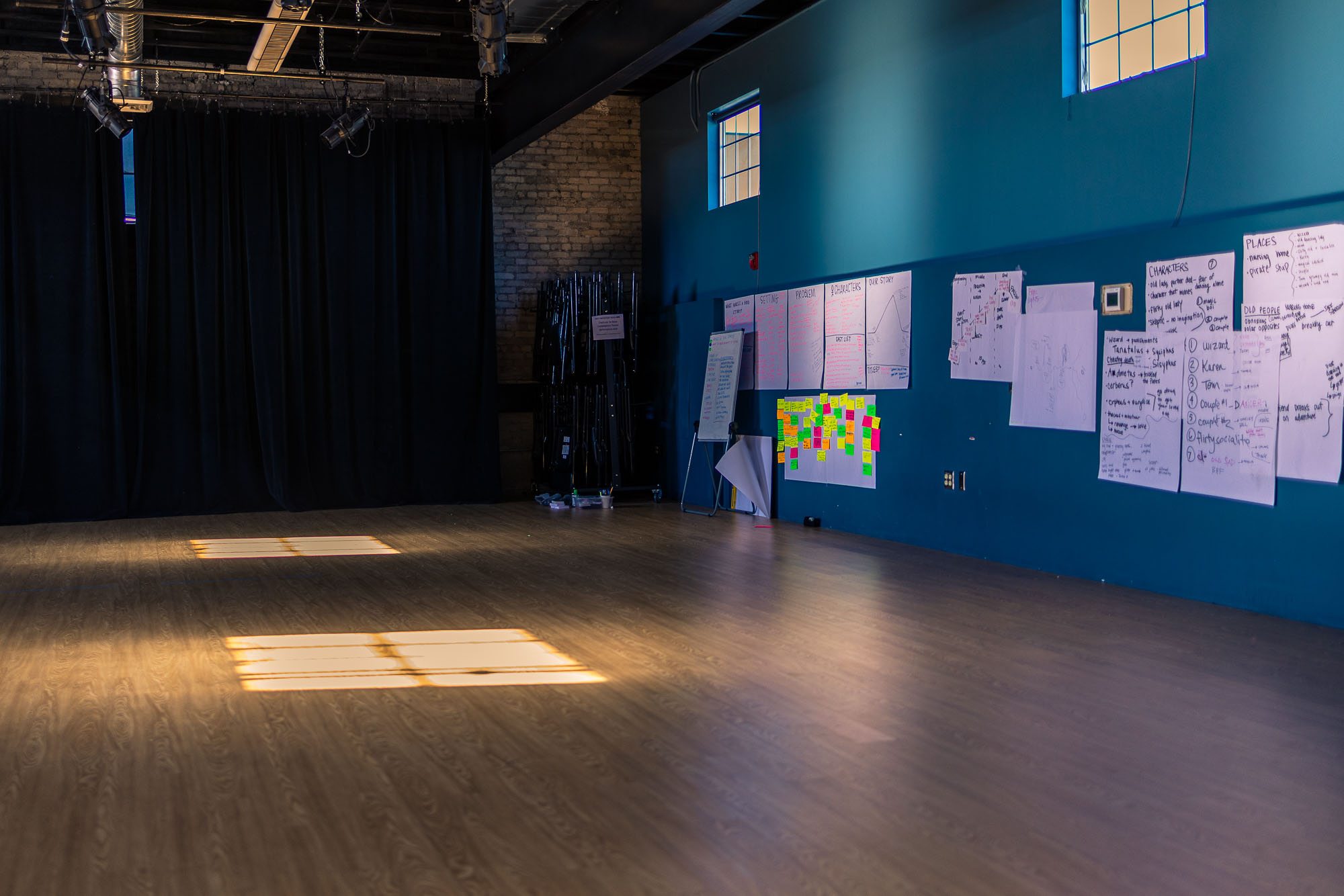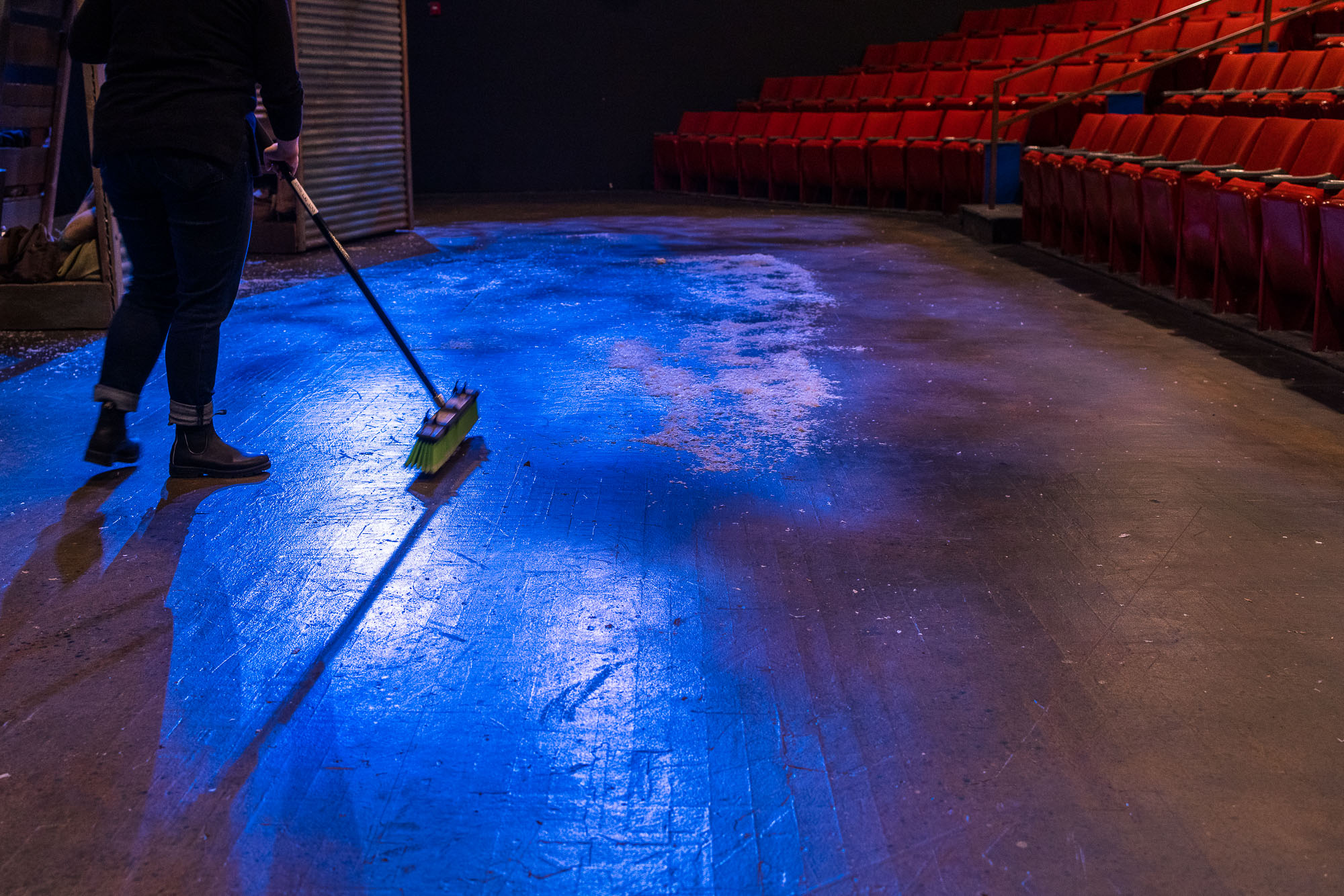Creators, Makers, & Doers: Benjamin Burdick of Boise Contemporary Theater
Posted on 11/28/22 by Brooke Burton
Interview & Photography by Brooke Burton © Boise City Department of Arts & History
Boise Contemporary Theater is the City of Boise’s Cultural Ambassador for the 2022-2023 term. Before rehearsals for Jodeen Revere’s one woman play, The Persistent Guest, we caught up with artistic director Benjamin Burdick to find out how contemporary theater is so much more than a show. But first we got the scoop on Burdick’s uncommon experience in Hollywood (find out which t.v. show you’ve seen him on,) his childhood dream job, and his take on affirmative action. Why do we need contemporary storytelling? Just ask about his experience taking a teen program to internally displaced persons camps in northern Uganda, or about BCT’s Theater Lab; it’s about the storytellers themselves, about hearing their own voice, and increasing empathy out in the real world. And that’s why he’ll take the challenges of running a nonprofit theater, sleepless nights and all.
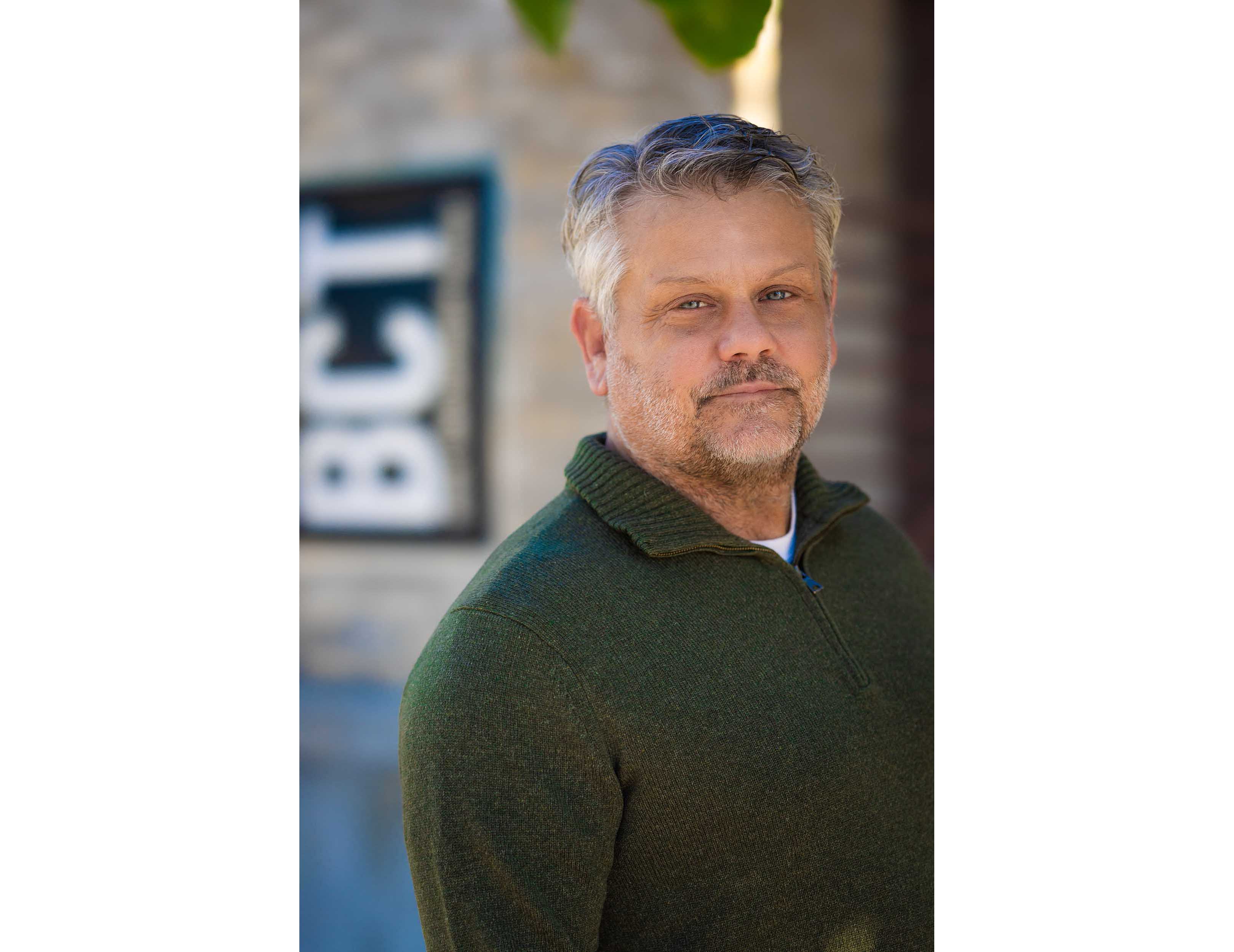 Tell me about your experience in Hollywood.
Tell me about your experience in Hollywood.
Oh [Chuckling.]
You had no idea what you were in for today.
I grew up in Jerome, [Idaho], and went to school back East, to Yale, where I was introduced to improv comedy. Growing up in Jerome, a tiny town, I’d never seen improv comedy, it blew my mind. So for most of college I did theater and improv. After I got my degree, I took a year to give some time back in AmeriCorps. Then a friend of mine who was out in Los Angeles said “Come out, we’ll just give it a year or two, we’ll do some improv and you know, it will be a good time.” At the time I was [planning] to go on to law school.
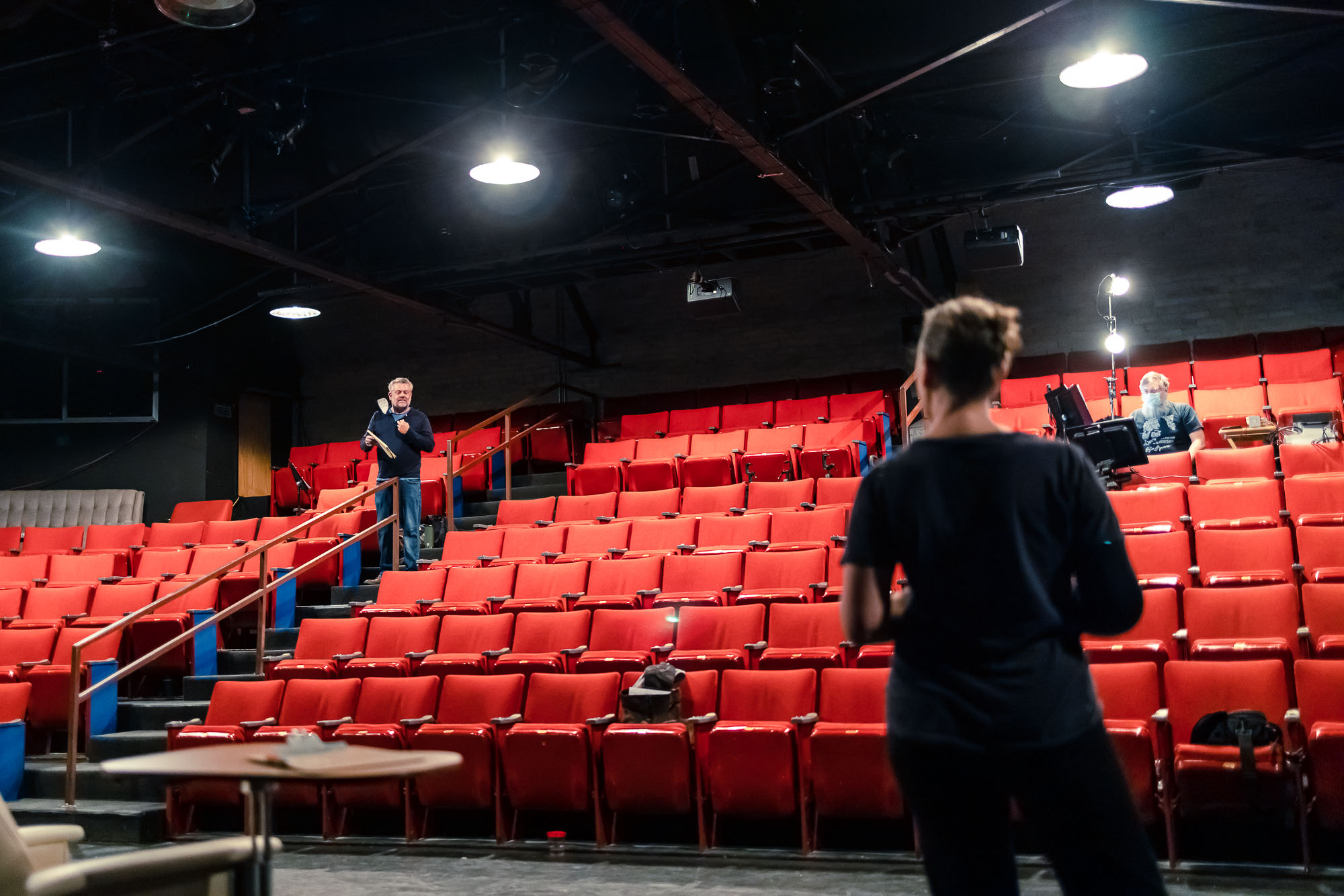 But you went to Yale for theater?
But you went to Yale for theater?
No, I was a poli sci major.
What?
My big dream was to be the governor of Idaho. Growing up, I was pretty involved in politics, before becoming entirely disillusioned. But, people like Cecil Andrus—he was my hero. I met him a few times through my activities in high school; I was Boys State governor during the Idaho Centennial in 1990. I worked hard in high school, I was very active, but so are tens of thousands of other students from all over the country; there were students who were smarter than me, who’d done more extracurricular activities, but there are also not many people from a place like Jerome. I’m a big believer in affirmative action because I am a product of affirmative action. They have to take people from all fifty states, from all backgrounds and walks of life. And that adds to the fabric of Yale. So, yeah, after Yale, I thought I was going to go to law school.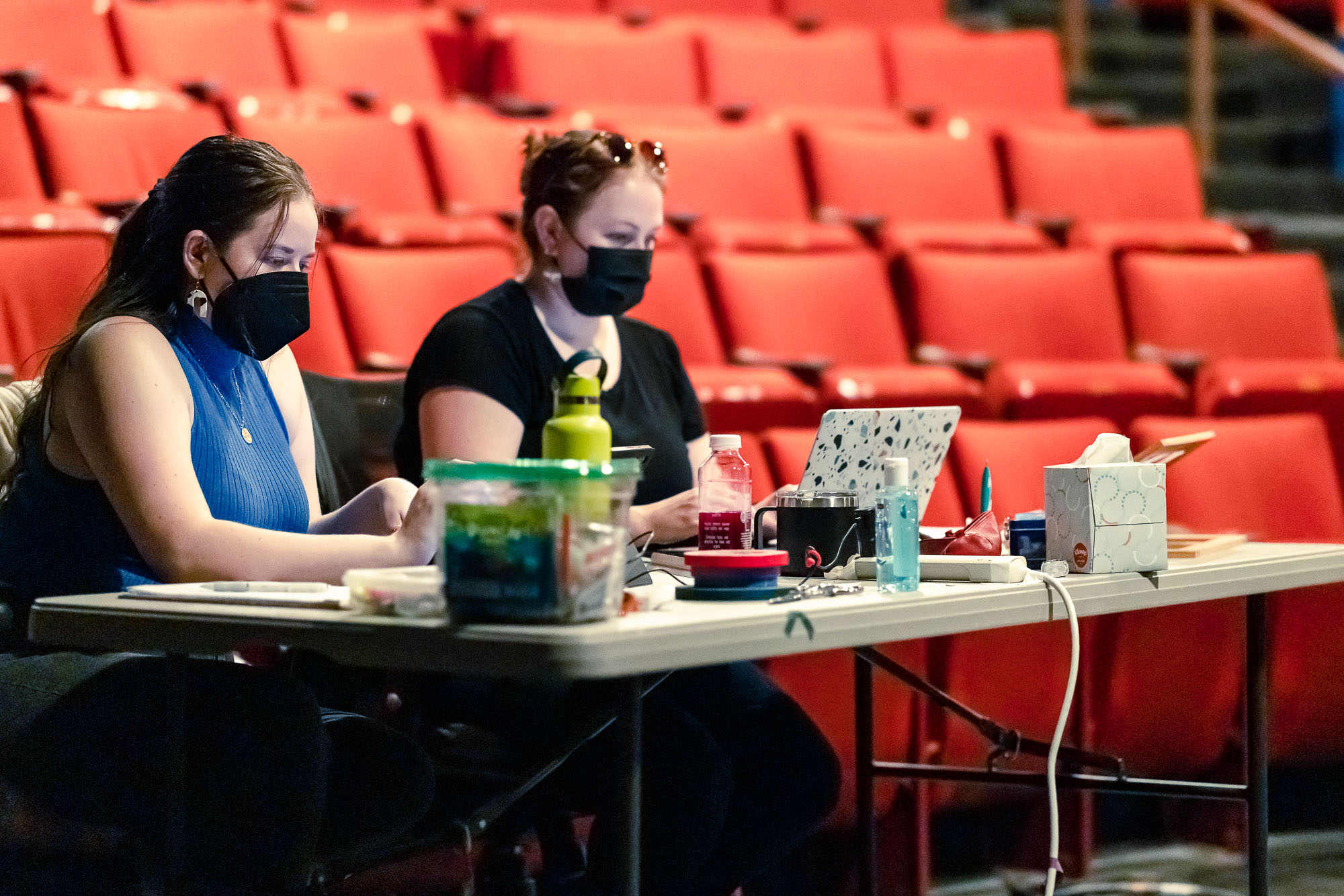
But you took a detour?
I was in Los Angeles and got lucky. I auditioned for a television show called Born Free, based on an old book and movie, and was cast as the lead and shot 26 episodes.
All your actor friends must have hated you. [laughter]
It was pretty unique. I was really lucky. That’s how a lot of acting goes. If it makes you hate me less, though, we shot those 26 episodes, I did a short film, and that completed one year where I worked steadily as an actor. We thought the show was going to go for at least another season. It didn’t. I ended up not working again for two years.
Like everyone else.
That’s when I really started the journey of being a working actor, which meant doing a lot of theater, doing some TV, some film, and trying to piece it all together with day jobs. [laughter]
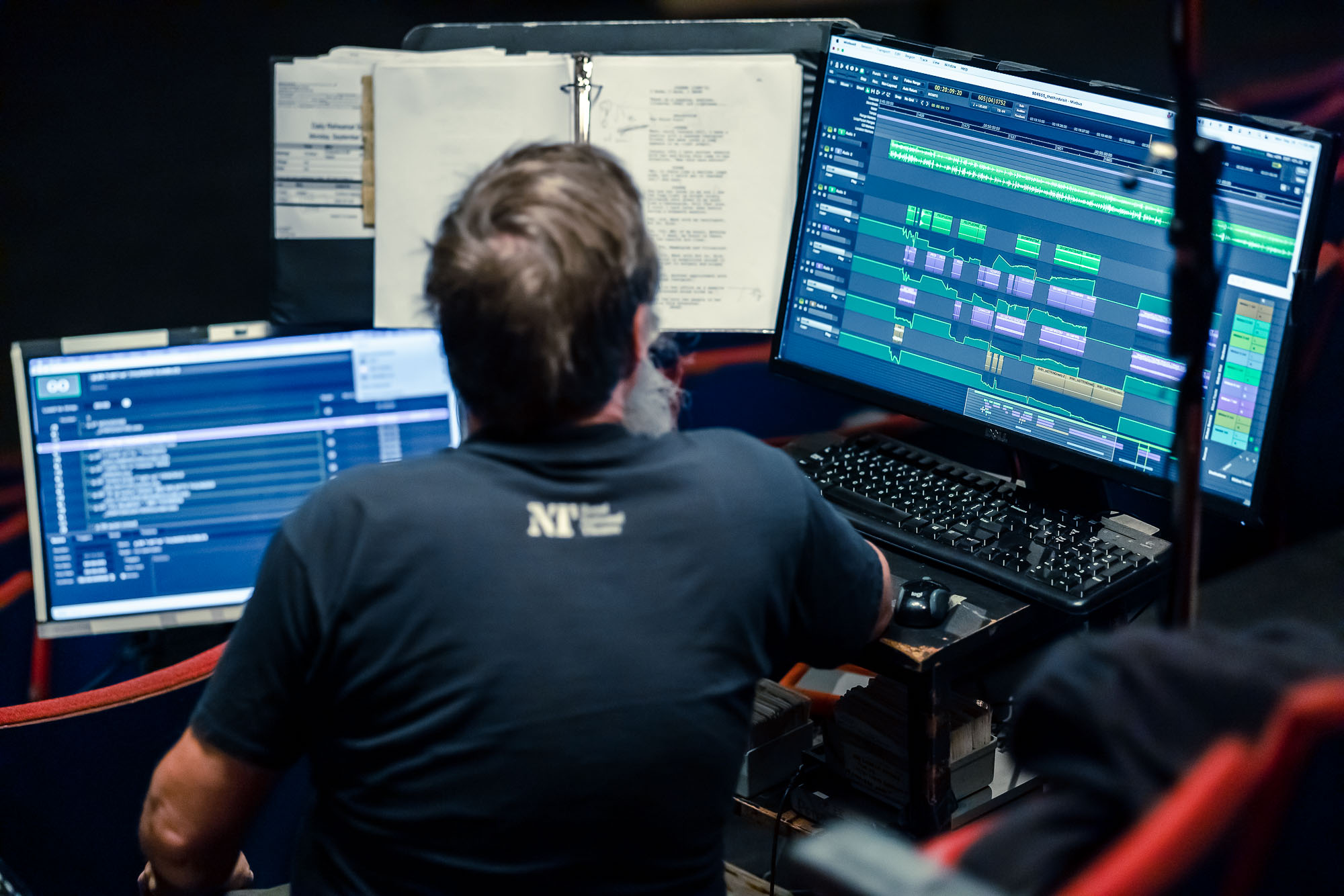 Was it a comedy or a drama?
Was it a comedy or a drama?
It was like a family drama and comedy. Dramedy, I guess. I played a son who comes back home whose mom is a wild animal vet. Instead of having guest stars every week, we had guest animals. It was amazing. The best part was riding an elephant on a daily basis. I had no idea what I was doing when I first started, like zero. I’d done a few things in LA, but nothing in front of the camera. I didn’t know the terminology.
Did you get into trouble at first?
I was smart and nervous enough to keep my mouth shut and just listen. The first day of filming, they were getting a shot of me in front of a cage with a little a meerkat or something in it. They said, “Okay, cut. All right, now we’ll get a dirty shot of Ben.” I thought, oh, I’m going to, like, roll around in the mud. [laughter]
A dirty shot is often two people talking, with the back shoulder of one character in the foreground.
Yeah. I learned a ton. It carried me forward for other jobs. I really loved the hustle. I loved theater. I loved taking classes. I think a lot of younger actors go to a place like Los Angeles or Chicago, get a day job, and wait for the phone to ring. I was around a group of hardworking actors who would take classes—
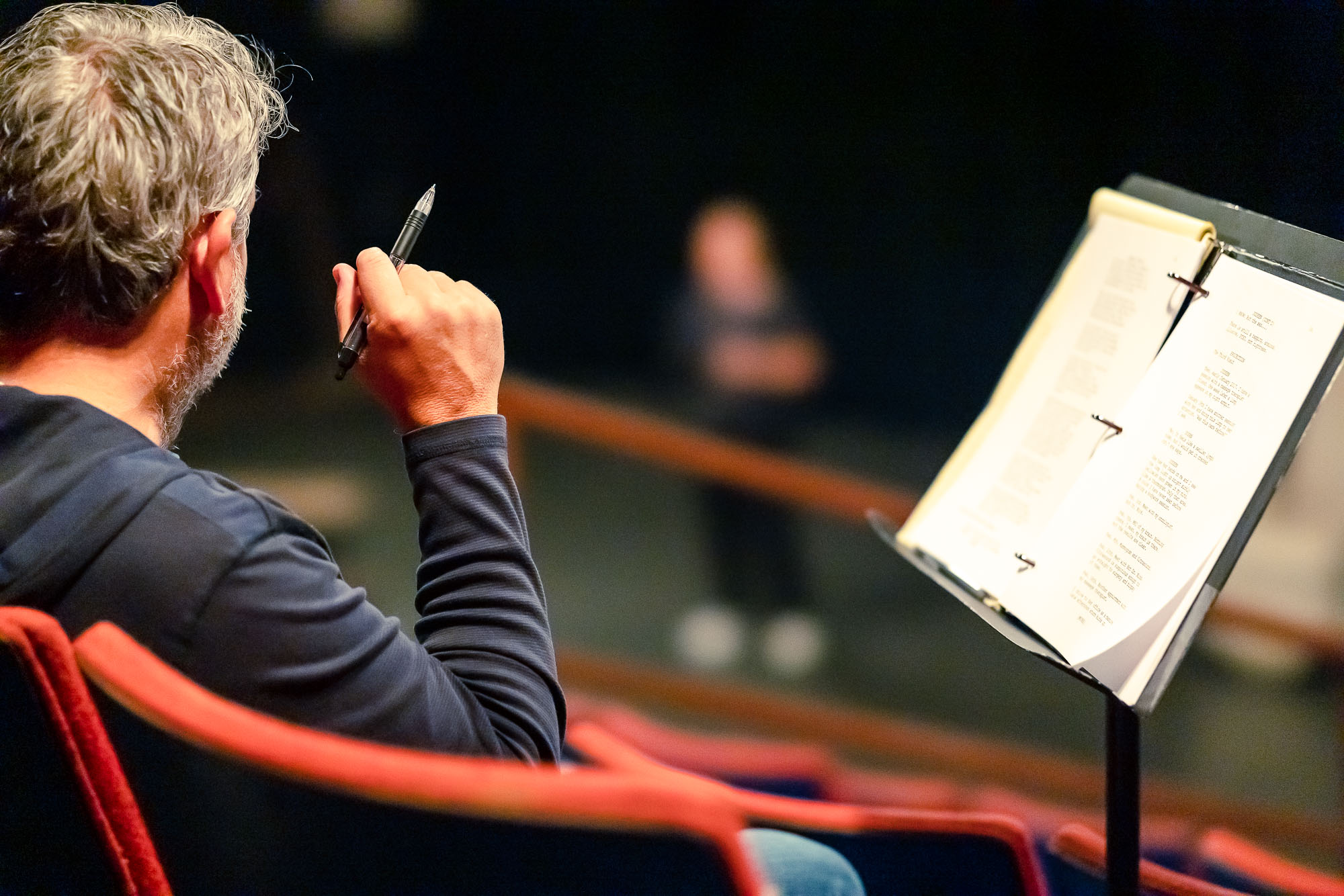
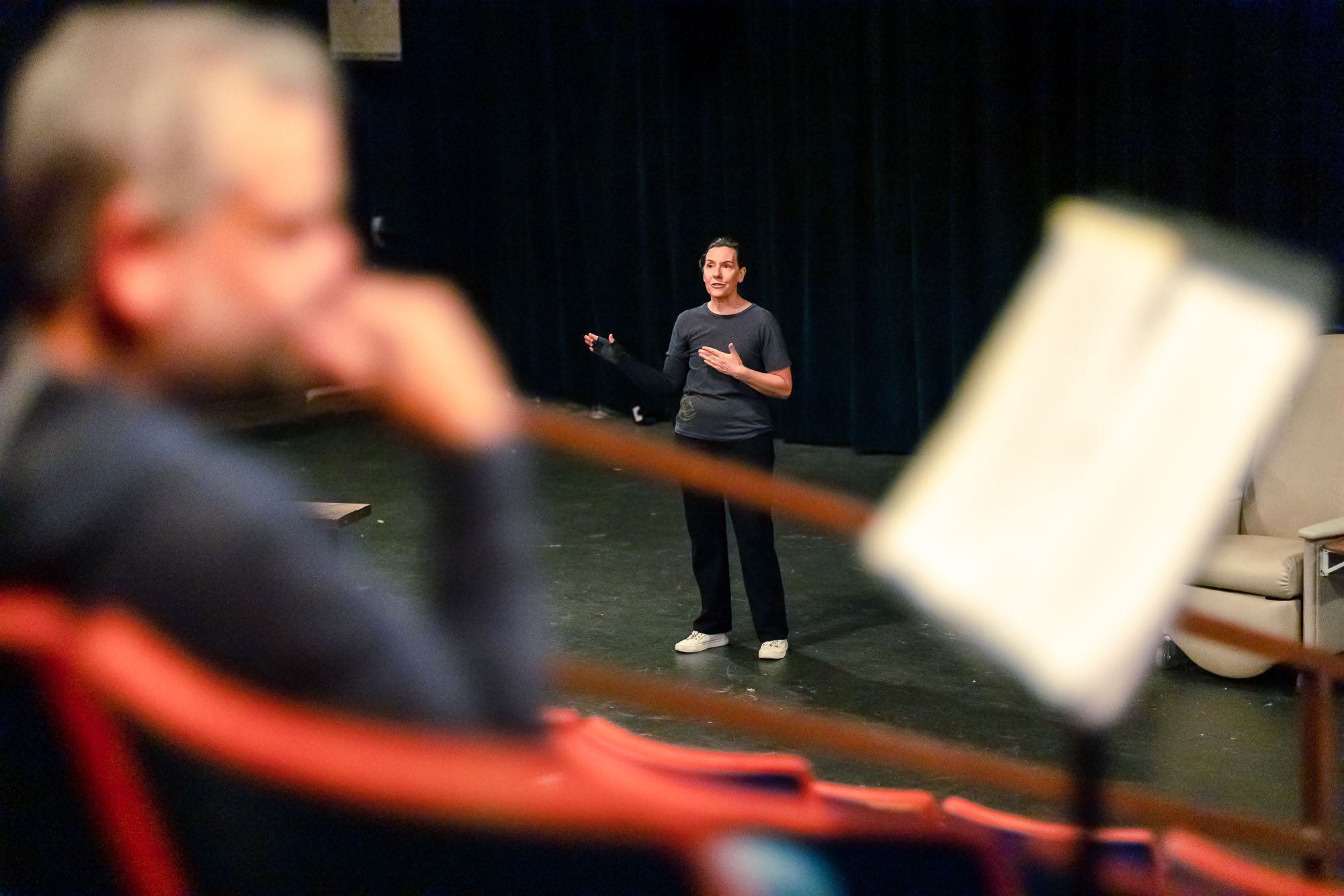 The hustle!
The hustle!
I did all the theater I could. Rarely did we get paid. I got involved with a great 99 seat theater company in Los Angeles, called the Open Fist Theatre Company. After about ten years in that company, I was the associate artistic director and directing some plays. That was the training ground for my work here. Toward the end of my time in LA, I was doing a lot of work in regional theaters; La Jolla Playhouse and the Hippodrome in Florida, but during the last two shows, my wife Jessica and I had a newborn on the way and a three-about-to-turn-four-year old boy.
That’s hard.
Rehearsals meant I was gone from 10:00 to 6:00, and Jessica, who’s also an actor and understands the lifestyle, was home alone watching two tiny humans. That just didn’t sit right with me. It proved to be too much.
Was it time for a change?
Yes, but, you know, what can I do? My real world resume was ridiculous.
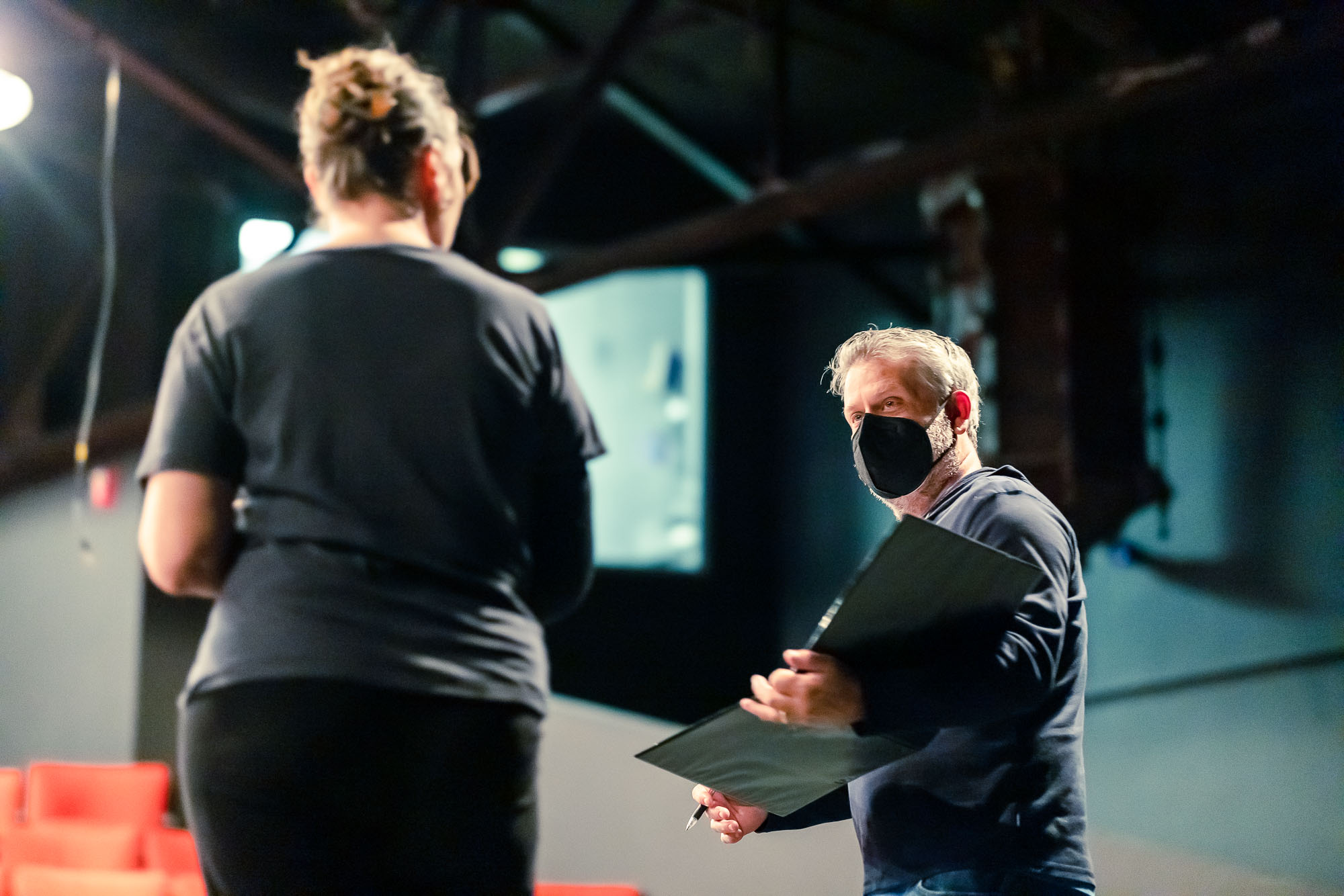 You mean as far as a nine-to-five?
You mean as far as a nine-to-five?
I’d been a barista. I’d been a paralegal. I’d been a dog walker. I got on a website called ARTSEARCH and typed in Idaho. Lo and behold, the managing director position here at BCT was open. And if you’ve run a small theater, you can run a medium-sized theater.
Had you always planned to come back to your home state?
I love it here. I really, honestly thought my future would be integrally involved with Idaho. I had no thought or concept that I would ever go to Los Angeles to be an actor. April 1st, 2018, was my first official day at BCT, it happened very quickly.
And are you getting that slower pace that you wanted?
Well, the kids are. I mean, running a theater is constant.
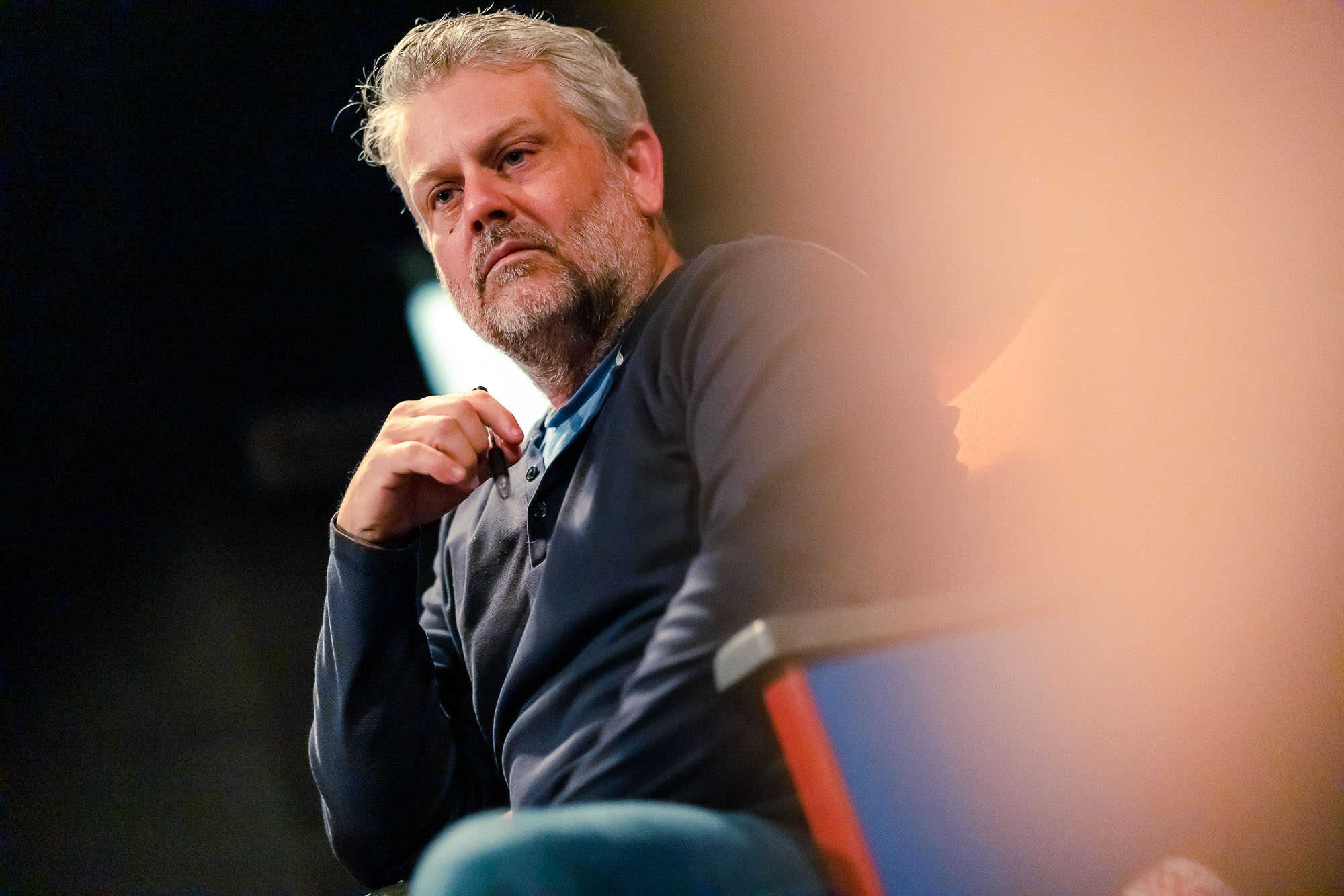 What are some of the challenges, besides money? [laughter]
What are some of the challenges, besides money? [laughter]
I’d been here for a year when there was a change in leadership, it was a difficult time. It was brand new territory for everyone and some were not in favor of the change. We were also getting emails that said, look, we love BCT, and we’re here to support you and the theater.
I said to the staff, “We are not here to do anything other than make sure Boise Contemporary Theater keeps its doors open, so we’re going to put our heads down and do the work. All the outside noise will fade at some point; I know it doesn’t seem like it right now, but it will. We can make sure we do the best job possible for all our patrons and continue to tell stories. This is Boise’s theater, it has an amazing patron base. BCT is so supported and so loved by the community.
Focus on the work, great advice. How would you differentiate contemporary theater from traditional?
We try to tell stories that were written in the last five years or so, something that’s never been produced in the state. We want to be the first to bring you new plays. I don’t know how many people have heard of Sweat; it won the Pulitzer in 2017, it’s one of the most amazing plays ever written and we’re going to do it this winter. But getting people into the theater to experience this new, wonderful thing is hard. We put on a show, we expect a certain level of production value and professionalism, and I think once people see that, they go, oh, you should see a show at BCT, it was really great. That’s the goal, the hope, then it becomes word of mouth.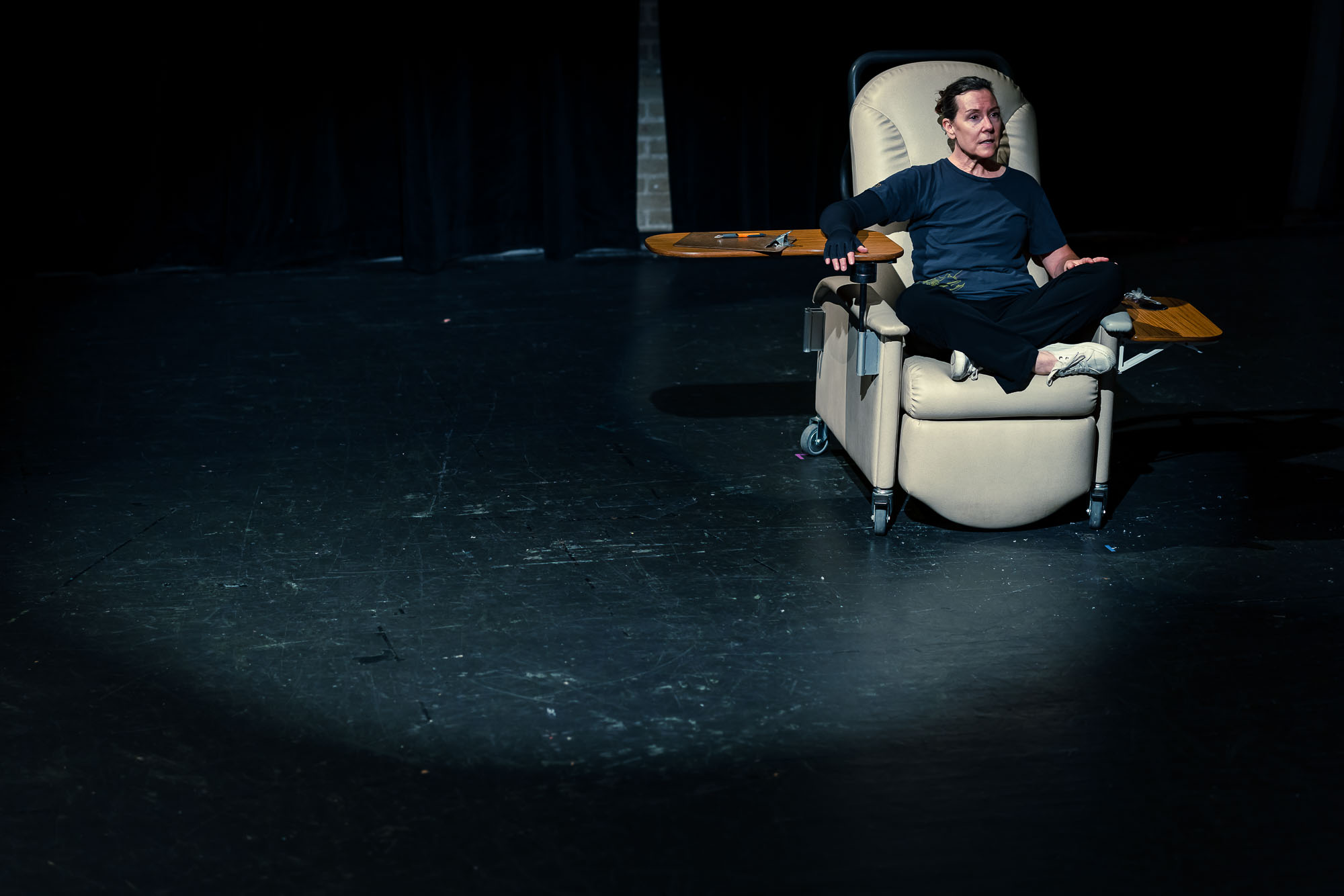
What is something you are proud of?
In the immediate, I’m proud of the direction and the course of BCT over the last four years; I’d expected to come here and have a slightly easier path. But after the leadership change came the pandemic, and that was the second hardest 18 months. I wasn’t doing any of the things I had signed up to do; the work was mitigating COVID and making decisions I had no business making.
Such as?
Should be open or not.
Ouch.
The whole staff was furloughed for a year. So I’m really proud of the entire staff for keeping it together over the last three years. It has not been easy. I’m proud not only that we are continuing, but it really feels like we are thriving, and being asked to be the cultural ambassadors for the City of Boise is a telling example of what BCT means to Boise. Now the challenge is getting season ticket holders to come back.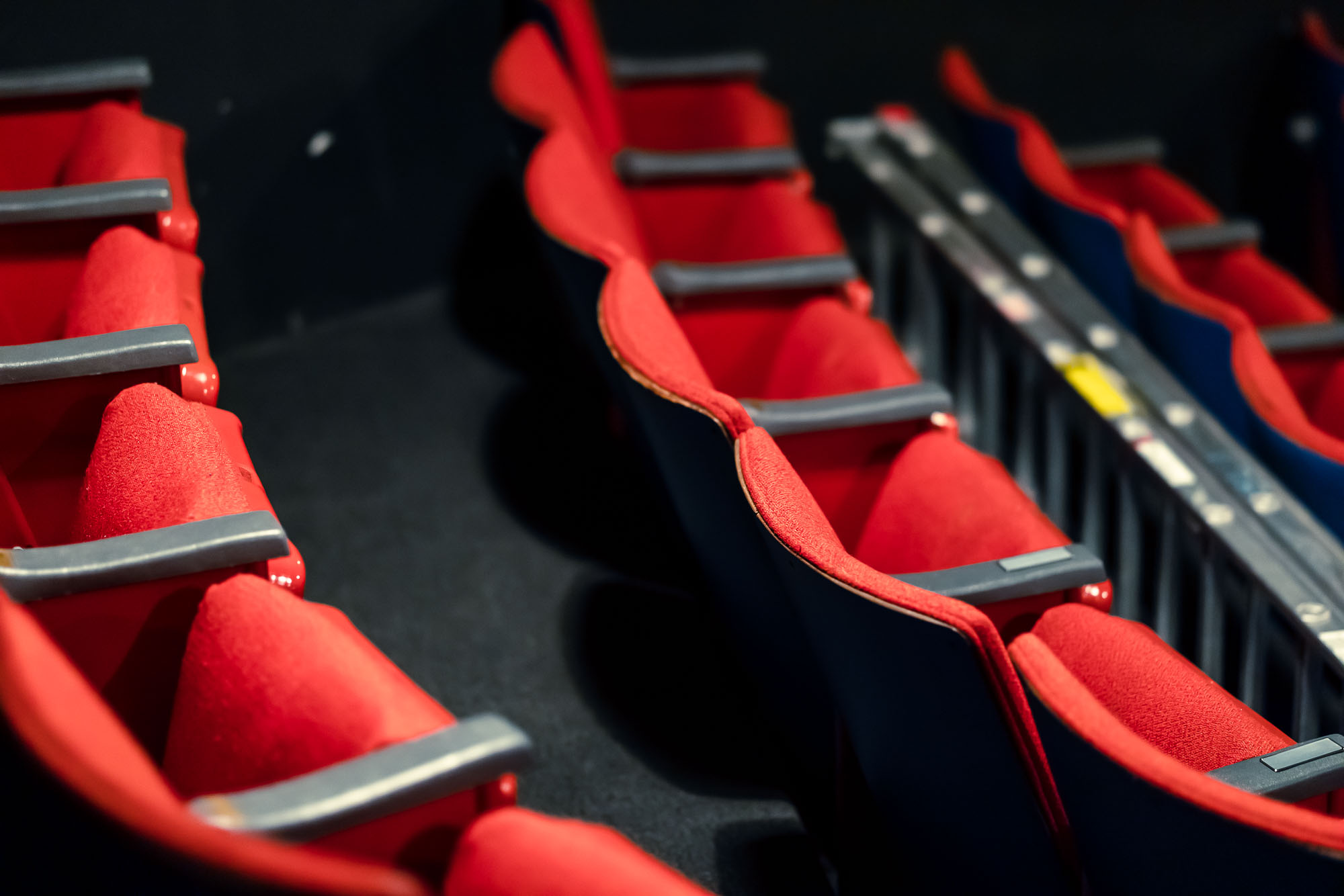
Did you ever have an experience with the art of storytelling that made a strong impact on you or your personal inner compass?
I was involved with a group called Voices in Harmony. It was a mentorship program, in essence; actors working with teens who come from difficult backgrounds or are in the midst of difficult situations at home. They would write a five, six-minute play for two people, based on a theme. The mentor and the student would act it out. One of the the founders, Melissa Fitzgerald, had a recurring role on The West Wing, so she would bring in writers from The West Wing and they would help craft the play. We would rehearse, then put it on in a large theater for their schools, parents, and friends. It struck me as so impressive—the voices, the talent they had. The stories told were remarkable.
What a gift to those students! And to the mentors!
Well, then we took the program to northern Uganda, which, at the time, was under siege by Joseph Kony, so people were living in IDP camps, internally displaced persons camp. In this tiny town called Kitgum, there were no international safety or health guidelines; it was a town in total poverty. A bunch of the teens were ex children soldiers who had been abducted and forced to fight, or, the girls in particular were, in essence, sex slaves for the soldiers. We went to this tiny village and asked them “What are your stories? What is important?”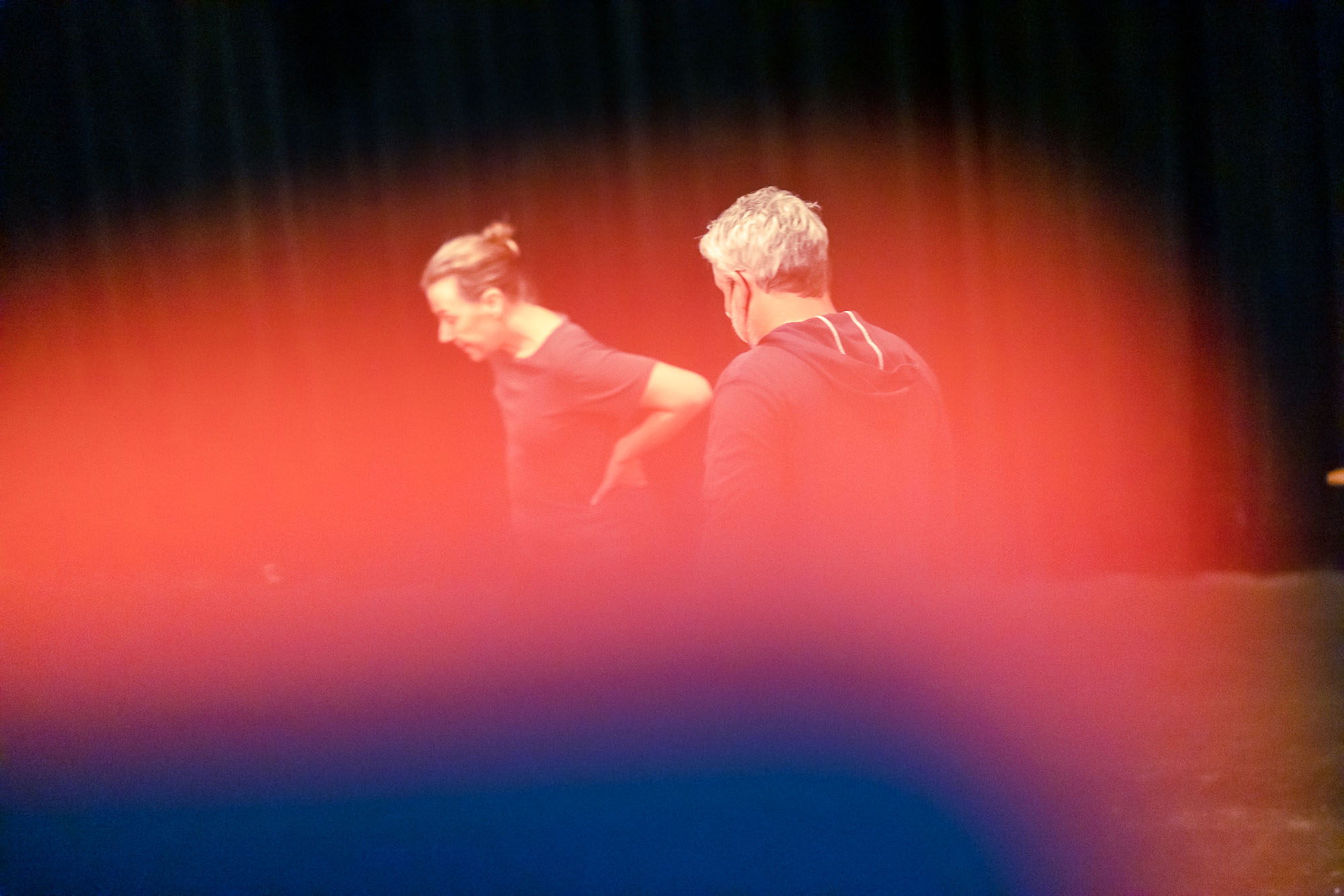
I can’t imagine.
Peace and reconciliation was first and foremost, then HIV/AIDS. Peace and reconciliation was a big part of the whole community because many were taken from one village and forced to fight in the next village where they had family members. It was really important for the teens to tell that story. To me, that is why storytelling and contemporary theater is so crucial. It is a voice of the times. Our mission is to tell thought-provoking stories about the human experience.
I often think about theater in terms of audience experience, but I hadn’t considered the impact on the storytellers themselves.
It’s why I work so hard to allow people to tell their stories, to hear their own voices and be seen by patrons in the community. People talk a lot about how theater holds a mirror up to society, more importantly, we want to provide a window to an entirely different world, one that expands their worldview, but above all, expands their empathy and understanding. That is the power of storytelling.
That sounds like BCT’s Theater Lab.
Yes. When interviewing for the job at BCT, one of the first things they said, was, “We’d like you to come up and see Theater Lab.” Well, it was one of the most amazing theatrical experiences I’ve ever had. Theater Lab Mainstage is a ten-week program for 12 to 18 year olds. What we expect of them is to come in and work with ten to twelve of their peers and to come up with a brand new, original, thirty-minute play.
In ten weeks.
Yes.
That they have written themselves, collaboratively?
Yes.
That would be difficult for adults to pull off. The collaborative writing, especially.
It’s almost impossible for adults to do.
You and I are sitting in the rehearsal room, so I can see on the wall all sorts of brainstorming notes, where they’ve put up ideas, inspiration.
It’s a blank slate. They come up with characters, places or images, they call it imagemaking. You just throw it all up on the wall, literally throw everything on the wall.
Like spaghetti.
Some of it is going to stick, and some will have to go away. There’s a great saying in Theater Lab, “Hold on tightly and let go lightly.” What it refers to is, fight for your idea, you know, really hold onto it if you think it’s great—
If you feel passionate about it?
Right, if you have conviction about it, but there are eleven other people in the room, and if that idea just isn’t going to be part of the larger structure that is starting to emerge, then you have to let go lightly. That’s a lesson that we’re teaching young artists to take out into the real world. Fight for what you believe in, and also understand that there’s going to be a time when you may have to say, okay, let’s figure out how we can come together.
How to let go in order to move forward. How to compromise.
We really want them to walk away with life skills. We’re not trying to make actors or writers out of these young artists; what we’re trying to get them to do is be authentic and hear the power of their voice, their words, and then take that out into the world and help make this a better place. I’ll take the sleepless nights and shoveling snow off the roof, and all of the things that go with running a nonprofit, because it’s entirely worth it.
Downtown Boise
December 7, 2022
Boise City Cultural Ambassador
This interview has been edited and condensed for clarity.
Creators, Makers, & Doers highlights the lives and work of Boise artists and creative individuals. Selected profiles focus on individuals whose work has been supported by the Boise City Dept. of Arts & History. The views expressed in this publication are those of the individuals interviewed.
